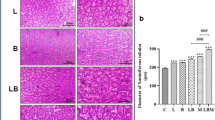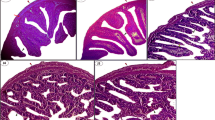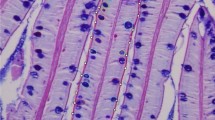Abstract
This study aimed to investigate the effect of black cumin seed oil (BCSO) on the growth metrics, innate immunity and resistance against Pseudomonas fluorescens infection in Nile tilapia Oreochromis niloticus. This was done by conducting a feeding trial experiment on the fish. A total of four diets (protein, 35.99 ± 0.16%; lipid, 9.86 ± 0.06%) varying in their BCSO ration (w/w; 0% (control), 1%, 2% or 4%) were formulated. A total of 180 fish (25.6 ± 2.2 g fish─1) were allocated to four experimental groups with three replicates (twelve 150-L glass-tanks; fifteen fish tank─1). Each fish group was fed thrice a day (8:00, 12:00 and 16:00 h) with one of the four diets at 3.5% of their body weight for 28 days. Following day 7, 14 and 28 of the feeding trial, the growth metrics (i.e. weight gain (WG), specific growth rate (SGR) and food conversion ratio (FCR)) were measured based on bulk weight of the fish tank─1, and the immune parameters (i.e. serum-bactericidal activity (SBA), respiratory burst activity (RBA) and phagocytic activity (PA)) were examined by analysing blood collected from a randomly selected representative fish tank─1. Following the feeding trial course, the fish were injected with P. fluorescens at day 29 and the cumulative mortality was recorded until day 30 post-injection. Obtained results did not show any suppressive effect of BCSO on growth, and showed positive effects on examined immune parameters and survival of all the BCSO-fed fish groups, with best results in 2% BCSO-fed group. At the end of the feeding trial (day 28), SBA, PA and RBA in 2% BCSO-fed fish were increased by 3.66-, 1.94- and 2.85-fold, respectively, when compared to the control. In the same group of fish, the maximum significant (P < 0.05) reduction of post-challenge cumulative mortality (43.33%) was recorded when the mortality was 100% in the control group. Accordingly, this study suggests the dietary inclusion of BCSO at 2% towards controlling P. fluorescens infection in O. niloticus.




Similar content being viewed by others
Data availability
The data in this article had not been previously shared or published anywhere else. The datasets supporting the conclusions of this article are included within the article.
References
Abdel-Fattah M, El-Sayed (Edts.) (2006) Tilapia culture. CABI Publishing, Cambridge, p. 304. https://www.cabi.org/bookshop/book/9780851990149/. Accessed 5 Mar 2020
Al-Beitawi NA, El-Ghousein SS, Nofal AH (2009) Replacing bacitracin methylene disalicylate by crushed Nigella sativa seeds in broiler rations and its effects on growth, blood constituents and immunity. Livest Sci 125:304–307. https://doi.org/10.1016/j.livsci.2009.03.012
Alexandar JB, Ingram GA (1992) Noncellular non-specific defence mechanisms of fish. Annu Rev Fish Dis 2:249–279. https://doi.org/10.1016/0959-8030(92)90066-7
Ali BH, Blunden G (2003) Pharmacological and toxicological properties of Nigella sativa. Phytother Res 17:299–305. https://doi.org/10.1002/ptr.1309
Al-Saleh IA, Billedo G, El-Doush II (2006) Levels of selenium, dl-α-tocopherol, dl-γ-tocopherol, all-trans-retinol, thymoquinone and thymol in different brands of Nigella sativa seeds. J Food Compos Anal 19:167–175. https://doi.org/10.1016/j.jfca.2005.04.011
Altunoglu YC, Bilen S, Ulu F, Biswas G (2017) Immune responses to methanolic extract of black cumin (Nigella sativa) in rainbow trout (Oncorhynchus mykiss). Fish Shellfish Immunol 67:103–109. https://doi.org/10.1016/j.fsi.2017.06.002
Anderson DP (1992) Immunostimulants, adjuvants, and vaccine carriers in fish: applications to aquaculture. Annu Rev Fish Dis 2:281–307. https://doi.org/10.1016/0959-8030(92)90067-8
Antonelli P, Belluco S, Mancin M, Losasso C, Ricci A (2019) Genes conferring resistance to critically important antimicrobials in Salmonella enterica isolated from animals and food: a systematic review of the literature, 2013–2017. Res Vet Sci 126:59–67. https://doi.org/10.1016/j.rvsc.2019.08.022
AOAC (2005) Official methods of analysis, 13th edn. Association of Official Analytical Chemists, Washington, DC, USA
Arslan SO, Gelir E, Armutcu F, Coskun O, Gurel A, Sayan H, Celik IL (2005) The protective effect of thymoquinone on ethanol-induced acute gastric damage in the rat. Nutr Res 25:673–680. https://doi.org/10.1016/j.nutres.2005.06.004
Awad E, Austin D, Lyndon AR (2013) Effect of black cumin seed oil (Nigella sativa) and nettle extract (Quercetin) on enhancement of immunity in rainbow trout, Oncorhynchus mykiss (Walbaum). Aquaculture 388:193–197. https://doi.org/10.1016/j.aquaculture.2013.01.008
Ayisi CL, Zhao J, Apraku A (2019) Consequences of replacing fish oil with vegetable oils in fish. J Anim Res Nutr 4:1–11. https://doi.org/10.21767/2572-5459.100053
Bondad-Reantaso MG, Subasinghe RP, Arthur JR, Ogawa K, Chinabut S, Adlard R, Tan Z, Shariff M (2005) Disease and health management in Asian aquaculture. Vet Parasitol 132:249–272. https://doi.org/10.1016/j.vetpar.2005.07.005
Bulfon C, Bongiorno T, Messina M, Volpatti D, Tibaldi E, Tulli F (2017) Effects of Panax ginseng extract in practical diets for rainbow trout (Oncorhynchus mykiss) on growth performance, immune response and resistance to Yersinia ruckeri. Aquac Res 48:2369–2379. https://doi.org/10.1111/are.13072
Bullock GL (1965) Characteristics and pathogenicity of a capsulated Pseudomonas isolated from goldfish. Appl Environ Microbiol 13:89–92 https://aem.asm.org/content/13/1/89 Accessed 05 Mar 2020
Burits M, Bucar F (2000) Antioxidant activity of Nigella sativa essential oil. Phytother Res 14:323–328. https://doi.org/10.1002/1099-1573(200008)14:5<323::AID-PTR621>3.0.CO;2-Q
Burridge L, Weis JS, Cabello F, Pizarro J, Bostick K (2010) Chemical use in salmon aquaculture: a review of current practices and possible environmental effects. Aquaculture 306:7–23. https://doi.org/10.1016/j.aquaculture.2010.05.020
Butaitė E, Baumgartner M, Wyder S, Kümmerli R (2017) Siderophore cheating and cheating resistance shape competition for iron in soil and freshwater Pseudomonas communities. Nat Commun 8:414. https://doi.org/10.1038/s41467-017-00509-4
Caballero MJ, Obach A, Rosenlund G, Montero D, Gisvold M, Izquierdo MS (2002) Impact of different dietary lipid sources on growth, lipid digestibility, tissue fatty acid composition and histology of rainbow trout, Oncorhynchus mykiss. Aquaculture 214:253–271. https://doi.org/10.1016/S0044-8486(01)00852-3
Cahill MM (1990) Bacterial flora of fishes: a review. Microb Ecol 19:21–41. https://doi.org/10.1007/BF02015051
Chervinski J (1982) Environmental physiology of tilapias. In: Pullin RSV, Lowe-McConnell RH (Edts.), The biology and culture of tilapias. ICLARM conference proceedings 7, International Center for Living Aquatic Resources Management, Manila, Philippines, pp. 119-128
Christybapita D, Divyagnaneswari M, Michael RD (2007) Oral administration of Eclipta alba leaf aqueous extract enhances the non-specific immune responses and disease resistance of Oreochromis mossambicus. Fish Shellfish Immunol 23:840–852. https://doi.org/10.1016/j.fsi.2007.03.010
Corraze G (2001) Lipid nutrition. In: Guillaume J, Kaushik S, Bergot P, Me’tailler K (Edts.), Nutrition and feeding of fish and crustaceans. Springer Prarois, Chichester, pp. 111-130. https://www.springer.com/gp/book/9781852332419. Accessed 5 Mar 2020
Degani G, Yehuda Y, Viola S, Degani G (1997) The digestibility of nutrient sources for common carp, Cyprinus carpio Linnaeus. Aquac Res 28:575–580. https://doi.org/10.1046/j.1365-2109.1997.00895.x
Dey BK, Dugassa GH, Hinzano SM, Bossier P (2019) Causative agent, diagnosis and management of white spot disease in shrimp: a review. Rev Aquac (online version of record). https://doi.org/10.1111/raq.12352
Diaz-Lopez M, Perez MJ, Acosta NG, Tocher DR, Jerez S, Lorenzo A, Rodriguez C (2009) Effect of dietary substitution of fish oil by echium oil on growth, plasma parameters and body lipid composition in gilthead seabream (Sparus aurata L.). Aquac Nutr 15:500–512. https://doi.org/10.1111/j.1365-2095.2008.00616.x
Dineshkumar G, Rajakumar R, Mani P (2014) Immunostimulant effect of Eichhornia crassipes (Mart.) solms against P. fluorescens infected Indian major carp Labeo rohita (ham.). Eur J Mol Biol Biochem 1:158–164 http://mcmed.us/viw/ejmbb/1/5#. Accessed 5 Mar 2020
Dügenci SK, Arda N, Candan A (2003) Some medicinal plants as immunostimulant for fish. J Ethnopharmacol 88:99–106. https://doi.org/10.1016/S0378-8741(03)00182-X
Eftimiadi C, Tonetti M, Cavallero A, Sacco O, Rossi GA (1990) Short-chain fatty acids produced by anaerobic bacteria inhibit phagocytosis by human lung phagocytes. J Infect Dis 161:138–142. https://doi.org/10.1093/infdis/161.1.138
Ellis AE (2001) Innate host defense mechanisms of fish against viruses and bacteria. Dev Comp Immunol 25:827–839. https://doi.org/10.1016/S0145-305X(01)00038-6
Elumalai P, Prakash P, Musthafa MS, Faggio C (2019) Effect of alkoxy glycerol on growth performance, immune response and disease resistance in Nile Tilapia (Oreochromis niloticus). Res Vet Sci 123:298–304. https://doi.org/10.1016/j.rvsc.2019.01.006
Fadeifard F, Raissy M, Jafarian M, Boroujeni HR, Rahimi M, Faghani M (2018) Effects of black seed (Nigella sativa), ginger (Zingiber officinale) and cone flower (Echinacea angustifolia) on the immune system of rainbow trout, Oncorhynchus mykiss. Arq Bras Med Vet Zootec 70:199–204. https://doi.org/10.1590/1678-4162-8489
FAO (2012) The state of world fisheries and aquaculture 2012. Food and Agriculture Organization of the United Nations, Rome, pp 1–209
FAO (2018) The state of world fisheries and aquaculture 2018—meeting the sustainable development goals. Food and Agriculture Organization of United Nations, Rome, pp. 1–210. http://www.fao.org/3/i9540en/i9540en.pdf. Accessed 5 Mar 2020
Figueiredo-Silva A, Rocha E, Dias J, Silva P, Rema P, Gomes E, Valente LMP (2005) Partial replacement of fish oil by soybean oil on lipid distribution and liver histology in European sea bass (Dicentrarchus labrax) and rainbow trout (Oncorhynchus mykiss) juveniles. Aquac Nutr 11:147–155. https://doi.org/10.1111/j.1365-2095.2004.00337.x
Galloway DA, Phillips AE, Owen DR, Moore CS (2019) Phagocytosis in the brain: homeostasis and disease. Front Immunol 10:790. https://doi.org/10.3389/fimmu.2019.00790
Gibtan A, Getahun A, Mengistou S (2008) Effect of stocking density on the growth performance and yield of Nile tilapia [Oreochromis niloticus (L., 1758)] in a cage culture system in Lake Kuriftu, Ethiopia. Aquac Res 39:1450–1460. https://doi.org/10.1111/j.1365-2109.2008.02021.x
Gołaś I, Szmyt M, Potorski J, Łopata M, Gotkowska-Płachta A, Glińska-Lewczuk K (2019) Distribution of Pseudomonas fluorescens and Aeromonas hydrophila bacteria in a recirculating aquaculture system during farming of European grayling (Thymallus thymallus L.) broodstock. Water 11:376. https://doi.org/10.3390/w11020376
Hardi EH, Nugroho RA, Kusuma IW, Suwinarti W, Sudaryono A, Rostika R (2018) Borneo herbal plant extracts as a natural medication for prophylaxis and treatment of Aeromonas hydrophila and Pseudomonas fluorescens infection in tilapia (Oreochromis niloticus). F1000Research 7:1847. https://doi.org/10.12688/f1000research.16902.1
Harikrishnan R, Kim JS, Kim MC, Balasundaram C, Heo MS (2011a) Hericium erinaceum enriched diets enhance the immune response in Paralichthys olivaceus and protect from Philasterides dicentrarchi infection. Aquaculture 318:48–53. https://doi.org/10.1016/j.aquaculture.2011.04.048
Harikrishnan R, Kim JS, Kim MC, Balasundaram C, Heo MS (2011b) Prunella vulgaris enhances the non-specific immune response and disease resistance of Paralichthys olivaceus against Uronema marinum. Aquaculture 318:61–66. https://doi.org/10.1016/j.aquaculture.2011.05.020
Harikrishnan R, Kim JS, Balasundaram C, Heo MS (2012) Protection of Vibrio harveyi infection through dietary administration of Pueraria thunbergiana in kelp grouper, Epinephelus bruneus. Aquaculture 324:27–32. https://doi.org/10.1016/j.aquaculture.2011.10.019
Izquierdo MS, Obach A, Arantzamendi L, Montero D, Robaina L, Rosenlund G (2003) Dietary lipid sources for seabream and seabass: growth performance, tissue composition and flesh quality. Aquac Nutr 9:397–407. https://doi.org/10.1046/j.1365-2095.2003.00270.x
Kayansamruaj P, Pirarat N, Katagiri T, Hirono I, Rodkhum C (2014) Molecular characterization and virulence gene profiling of pathogenic Streptococcus agalactiae populations from tilapia (Oreochromis sp.) farms in Thailand. J Vet Diagn Investig 26:488–495. https://doi.org/10.1177/1040638714534237
Kiralan M, Özkan G, Bayrak A, Ramadan MF (2014) Physicochemical properties and stability of black cumin (Nigella sativa) seed oil as affected by different extraction methods. Ind Crop Prod 57:52–58. https://doi.org/10.1016/j.indcrop.2014.03.026
Kooti W, Hasanzadeh-Noohi Z, Sharafi-Ahvazi N, Asadi-Samani M, Ashtary-Larky D (2016) Phytochemistry, pharmacology, and therapeutic uses of black seed (Nigella sativa). Chin J Nat Med 14:732–745. https://doi.org/10.1016/S1875-5364(16)30088-7
Kumar P, Patra AK (2017) Beneficial uses of black cumin (Nigella sativa L.) seeds as a feed additive in poultry nutrition. World's Poult Sci J 73:872–885. https://doi.org/10.1017/S0043933917000848
Kumar P, Patra AK, Mandal GP, Samanta I, Pradhan S (2017) Effect of black cumin seeds on growth performance, nutrient utilization, immunity, gut health and nitrogen excretion in broiler chickens. J Sci Food Agric 97:3742–3751. https://doi.org/10.1002/jsfa.8237
MacArthur JI, Fletcher TC (1985) Phagocytosis in fish. In: Manning MJ, Tatner MF (Edts.), Fish immunology. Academic Press, London, pp. 29-46. https://doi.org/10.1016/B978-0-12-469230-5.50007-6
Magnadottir B (2006) Innate immunity of fish (overview). Fish Shellfish Immunol 20:137–151. https://doi.org/10.1016/j.fsi.2004.09.006
Meriac A, Eding EH, Schrama J, Kamstra A, Verreth JA (2014) Dietary carbohydrate composition can change waste production and biofilter load in recirculating aquaculture systems. Aquaculture 420:254–261. https://doi.org/10.1016/j.aquaculture.2013.11.018
Mohammed HH, Arias CR (2016) Protective efficacy of Nigella sativa seeds and oil against columnaris disease in fishes. J Fish Dis 39:693–703. https://doi.org/10.1111/jfd.12402
Montalban-Arques A, De Schryver P, Bossier P, Gorkiewicz G, Mulero V, Gatlin DM, Galindo-Villegas J (2015) Selective manipulation of the gut microbiota improves immune status in vertebrates. Front Immunol 6:512. https://doi.org/10.3389/fimmu.2015.00512
Narnaware YK, Baker BI, Tomlinson M (1994) The effects of various stresses, corticosteroids and adrenergic agents on phagocytosis in the rainbow trout. Fish Physiol Biochem 13:131–140 https://link.springer.com/article/10.1007/BF00004117. Accessed 5 Mar 2020
Neumann NF, Stafford JL, Barreda D, Ainsworth AJ, Belosevic M (2001) Antimicrobial mechanisms of fish phagocytes and their role in host defense. Dev Comp Immunol 25:807–825. https://doi.org/10.1016/S0145-305X(01)00037-4
Omitoyin BO, Ajani EK, Orisasona O, Bassey HE, Kareem KO, Osho FE (2019) Effect of guava Psidium guajava (L.) aqueous extract diet on growth performance, intestinal morphology, immune response and survival of Oreochromis niloticus challenged with Aeromonas hydrophila. Aquac Res 50:1851–1861. https://doi.org/10.1111/are.14068
Pakingking R, Palma P, Usero R (2015) Quantitative and qualitative analyses of the bacterial microbiota of tilapia (Oreochromis niloticus) cultured in earthen ponds in the Philippines. World J Microbiol Biotechnol 31:265–275 https://link.springer.com/article/10.1007%2Fs11274-014-1758-1 Accessed 05 Mar 2020
Rao YV, Das BK, Jyotyrmayee P, Chakrabarti R (2006) Effect of Achyranthes aspera on the immunity and survival of Labeo rohita infected with Aeromonas hydrophila. Fish Shellfish Immunol 20:263–273. https://doi.org/10.1016/j.fsi.2005.04.006
Rojo-Cebreros AH, Ibarra-Castro L, Martínez-Brown JM (2018) Immunostimulation and trained immunity in marine fish larvae. Fish Shellfish Immunol 80:15–21. https://doi.org/10.1016/j.fsi.2018.05.044
Roohi Z, Imanpoor MR, Jafari V, Taghizadeh V (2017) The use of fenugreek seed meal in fish diets: growth performance, haematological and biochemical parameters, survival and stress resistance of common carp (Cyprinus carpio L.). Aquac Res 48:1209–1215. https://doi.org/10.1111/are.12962
Safari R, Hoseinifar SH, Dadar M, Sattari M, Rahbar M (2019) The effects of Coriandrum sativum L. as feed additive on mucosal immune parameters, antioxidant defence and, immune-related genes expression in zebra fish (Danio rerio). Aquac Res 50:2621–2627. https://doi.org/10.1111/are.14218
Schopf RE, Mattar J, Meyenburg W, Scheiner O, Hammann KP, Lemmel EM (1984) Measurement of the respiratory burst in human monocytes and polymorphonuclear leukocytes by nitro blue tetrazolium reduction and chemiluminescence. J Immunol Methods 67:109–117. https://doi.org/10.1016/0022-1759(84)90090-5
Secombes CJ, Fletcher TC (1992) The role of phagocytes in the protective mechanisms of fish. Annu Rev Fish Dis 2:53–71. https://doi.org/10.1016/0959-8030(92)90056-4
Sharp GJE, Secombes CJ (1993) The role of reactive oxygen species in the killing of the bacterial fish pathogen Aeromonas salmonicida by rainbow trout macrophages. Fish Shellfish Immunol 3:119–129. https://doi.org/10.1006/fsim.1993.1013
Shelton WL (2002) Tilapia culture in the 21st century. In: Guerrero RD, Castillo MRG (Edts.), Tilapia farming in the 21st century. Philippine Fisheries Association, Laguna, pp. 1-20. https://books.google.com.bd/books/about/Tilapia_Farming_in_the_21st_Century.html?id=3vNJAAAAYAAJ&redir_esc=y. Accessed 5 Mar 2020
Toghyani M, Toghyani M, Gheisari A, Ghalamkari G, Mohammadrezaei M (2010) Growth performance, serum biochemistry and blood hematology of broiler chicks fed different levels of black seed (Nigella sativa) and peppermint (Mentha piperita). Livest Sci 129:173–178. https://doi.org/10.1016/j.livsci.2010.01.021
Toranzo AE, Magariños B, Romalde JL (2005) A review of the main bacterial fish diseases in mariculture systems. Aquaculture 246:37–61. https://doi.org/10.1016/j.aquaculture.2005.01.002
Ullah R, Rehman A, Zafeer MF, Rehman L, Khan YA, Khan MH, Khan SN, Khan AU, Abidi SMA (2017) Anthelmintic potential of thymoquinone and curcumin on Fasciola gigantica. PLoS One 12:e0171267. https://doi.org/10.1371/journal.pone.0171267
Van Doan H, Doolgindachbaporn S, Suksri A (2014) Effects of low molecular weight agar and Lactobacillus plantarum on growth performance, immunity, and disease resistance of basa fish (Pangasius bocourti, Sauvage 1880). Fish Shellfish Immunol 41:340–345. https://doi.org/10.1016/j.fsi.2014.09.015
Van Doan H, Hoseinifar SH, Sringarm K, Jaturasitha S, Yuangsoi B, Dawood MA, Esteban MÁ, Ringø E, Faggio C (2019) Effects of Assam tea extract on growth, skin mucus, serum immunity and disease resistance of Nile tilapia (Oreochromis niloticus) against Streptococcus agalactiae. Fish Shellfish Immunol 93:428–435. https://doi.org/10.1016/j.fsi.2019.07.077
Wamala SP, Mugimba KK, Mutoloki S, Evensen Ø, Mdegela R, Byarugaba DK, Sørum H (2018) Occurrence and antibiotic susceptibility of fish bacteria isolated from Oreochromis niloticus (Nile tilapia) and Clarias gariepinus (African catfish) in Uganda. Fish Aquat Sci 21:1–10. https://doi.org/10.1186/s41240-017-0080-x
Wang W, Sun J, Liu C, Xue Z (2017) Application of immunostimulants in aquaculture: current knowledge and future perspectives. Aquac Res 48:1–23. https://doi.org/10.1111/are.13161
Wassef EA, Shalaby SH, Saleh NE (2015) Cottonseed oil as a complementary lipid source in diets for gilthead seabream Sparus aurata juveniles. Aquac Res 46:2469–2480. https://doi.org/10.1111/are.12405
Yin G, Jeney G, Racz T, Xu P, Jun X, Jeney Z (2006) Effect of two Chinese herbs (Astragalus radix and Scutellaria radix) on non-specific immune response of tilapia, Oreochromis niloticus. Aquaculture 253:39–47. https://doi.org/10.1016/j.aquaculture.2005.06.038
Yin G, Ardo L, Thompson KD, Adams A, Jeney Z, Jeney G (2009) Chinese herbs (Astragalus radix and Ganoderma lucidum) enhance immune response of carp, Cyprinus carpio, and protection against Aeromonas hydrophila. Fish Shellfish Immunol 26:140–145. https://doi.org/10.1016/j.fsi.2008.08.015
Zhao Y, Wang L, Gao J (2019) Effects of dietary highly unsaturated fatty acid levels on growth, fatty acid profiles, antioxidant activities, mucus immune responses and hepatic lipid metabolism related gene expressions in loach (Misgurnus anguillicaudatus) juveniles. Aquac Res 50:2486–2495. https://doi.org/10.1111/are.14202
Acknowledgements
The authors would like to express their gratitude to the members and students of the Department of Fisheries and Marine Bioscience, Jashore University of Science and Technology, Bangladesh, for their cordial assistance to this experiment. The authors would also like to thank the members and students of other departments who were indirectly associated with the experiment. The authors are also grateful to the Nutrition and Food Institute of the University of Dhaka, Bangladesh, for supplying the bacterial strain for the experiment.
Author information
Authors and Affiliations
Contributions
Dr. Md. Mer Mosharraf Hossain and Bipul Kumar Dey designed the study, and Bipul Kumar Dey conducted the experiments, analysed the data and wrote the manuscript. Md. Eftakher Alam was actively associated with experimental works and data processing. The authors would like to thank everyone who was indirectly associated with this work. All authors read and approved the manuscript.
Corresponding author
Ethics declarations
Conflict of interest
The authors declare that they have no conflicts of interest.
Ethical approval
The ethical committee of the Department of Fisheries and Marine Bioscience, Jashore University of Science and Technology, Bangladesh, approved these experiments.
Additional information
Publisher’s note
Springer Nature remains neutral with regard to jurisdictional claims in published maps and institutional affiliations.
Rights and permissions
About this article
Cite this article
Dey, B.K., Hossain, M.M.M. & Alam, M.E. Effect of black cumin seed oil on growth, innate immunity and resistance against Pseudomonas fluorescens infection in Nile tilapia Oreochromis niloticus. Aquacult Int 28, 1485–1499 (2020). https://doi.org/10.1007/s10499-020-00539-8
Received:
Accepted:
Published:
Issue Date:
DOI: https://doi.org/10.1007/s10499-020-00539-8




